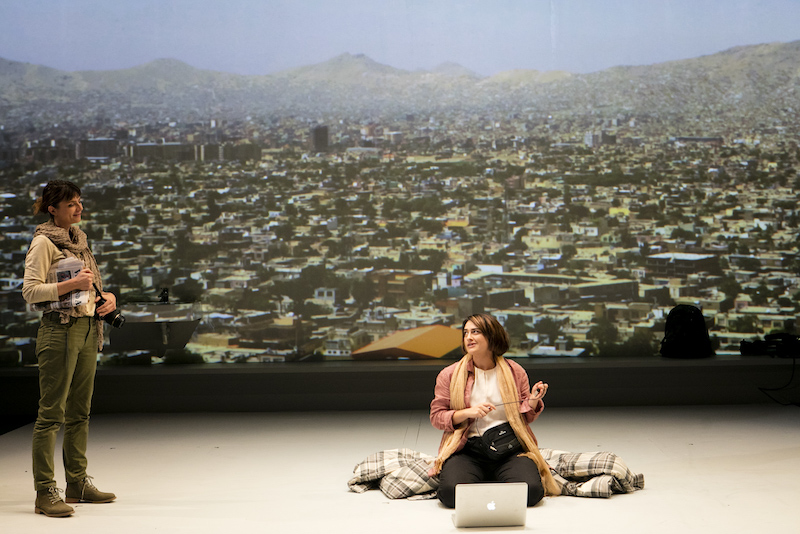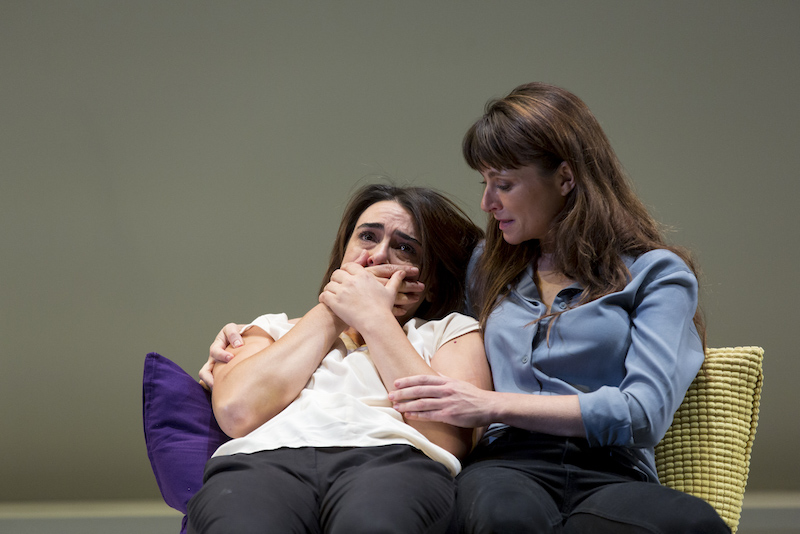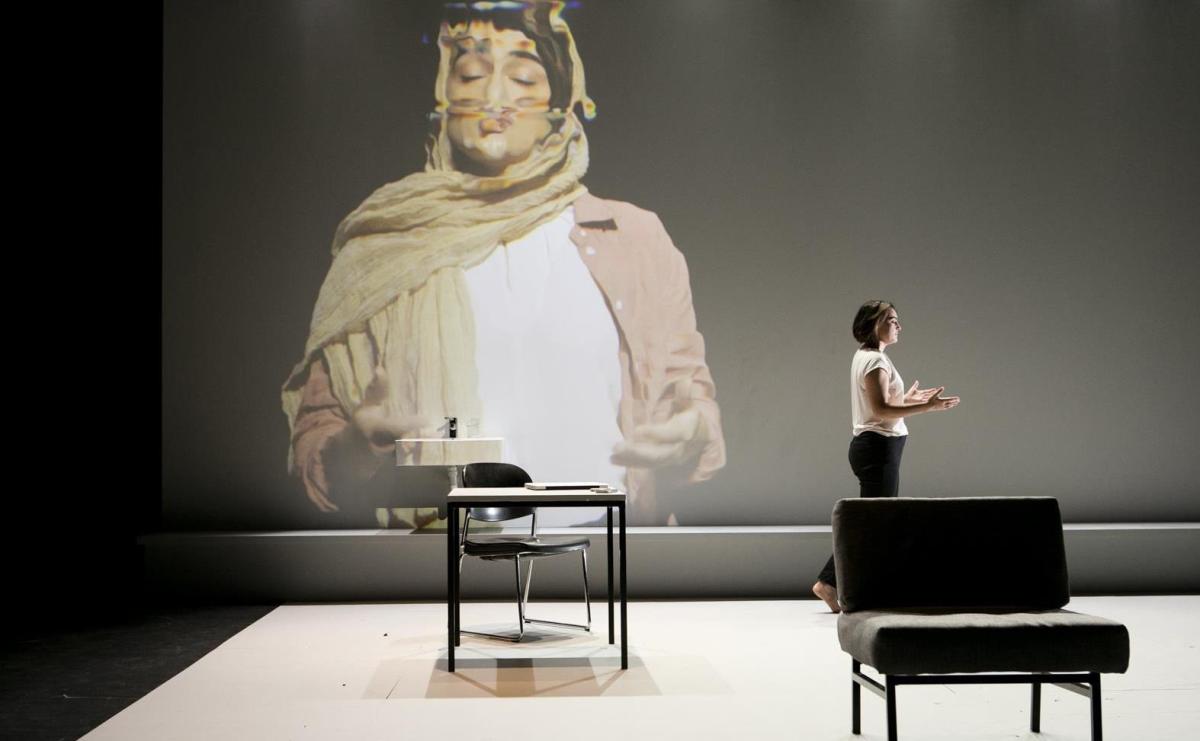Based on the real life experiences of ABC journalist Sally Sara, Stop Girl is a darkly humorous and brutally sobering examination of the trauma experienced by foreign correspondents and the difficulty they find returning home after time in the field.
The play follows the story of Suzie, (Sheridan Harbridge) a self-described ‘Bridget Jones in body armour’ as she works as a radio and television reporter in Afghanistan. Suzie records her radio reports under a doona, to muffle background noise from bombs, and tries to live by the moral code-of-conduct for journalists: honour the dead, don’t make things worse, mentally keep your distance.
Read: Theatre Review: Appropriate by Branden Jacobs-Jenkins
Through a series of conversations with friends and family, Suzie reports the horror and trauma she has experienced while working. The daily grind is not the sanitised report that is put to air on the nightly news, where euphemisms such as ‘the victims are still to be identified’ and ‘numbers of victims are expected to rise’ mask the fact that the victims are blown in to so many pieces that numbers and identities will never be known, she says.
‘Through a series of conversations with friends and family, Suzie reports the horror and trauma she has experienced while working.’
While filming at an Afghani labour ward, Suzie is forced to watch passively as a nurse beats a pregnant woman over the stomach to get her to speed up the birth, and the child’s father prays to god to stop his wife from giving birth to girls. On another occasion, after hours of logging the carnage of a bomb explosion which rips off limbs and scars children with shrapnel (‘it looks like freckles’), she abandons filming a small boy who’d been taken to hospital with half his face missing. She returns hours later to find him dead, and suffers remorse at having left the story before its end.

Amber McMahon and Sheridan Harbridge in Sally Sara’s Stop Girl. Photo by Brett Boardman.
When Suzie returns home to Sydney, the cracks begin to show. Home doesn’t feel like home. She has flashbacks, she can’t go to the supermarket, and everyday things like the starter pistol at a school sports day act as triggers for extreme reactions.
The starkness of the story is mirrored in the monochrome set design (by Robert Cousins). The stage has the bare minimum required to tell the story – a bed, a desk, a chair, a camera tripod, and in centre stage a laptop and microphone, the tools of trade for a reporter. A backdrop screen acts as a window to Suzie’s black and white flashbacks, and doubles as a camera feed for her news reports. Director, Anne-Louise Sarks, says the decision to keep the set and direction minimal was deliberate. She wanted to create something that felt like entering Suzie’s psychological space. It’s a brave decision that pays off.
While the play is relentless in its presentation of the sometime-trauma of reporting from war zones, there are moments of humour and pathos too. Wonderfully observed background characters, in the form of Suzie’s best friend, her mother and her Afghani born producer demonstrate sensitive and acutely observed writing and acting.

Sheridan Harbridge and Amber McMahon in Sally Sara’s Stop Girl. Photo by Brett Boardman.
Mansoor Noor is soulful as the quietly spoken producer, only raising his voice once to argue that the story of his people’s suffering did not just start when the reporters started reporting. In a measured and sensitive performance, Suzie’s best friend (Amber McMahon) tells her you need to sit in your life, no matter how uncomfortable it is. Connecting is never a mistake, she says.
‘Being a journalist in a war zone takes bravery. Almost 30 % of war journalists experience post-traumatic stress … Facing this trauma, and opening it up on a public stage is braver still.’
Suzie’s mother, beautifully played by Toni Scanlan, is both confused and hurt by her daughter’s distance and seeming desire to self-destruct. She points out that lives are full of trauma – the deaths, the divorces, the illnesses. Towards the end of the play she buys some brightly coloured cushions to add to Suzie’s new flat. ‘You’re home now’, she says, and the colourful cushions present the possibility for a new start for Suzie.
Being a journalist in a war zone takes bravery. Almost 30 % of war journalists experience post-traumatic stress, close behind the statistics for military personnel and first responders. Facing this trauma, and opening it up on a public stage is braver still. Sally Sara deserves our respect and praise for that.
Rating: 4 stars out of 5 ★★★★
Stop Girl by Sally Sara
Directed by Anne-Louise Sarks
Upstairs Theatre, Belvoir, NSW
20 March-25 April 2021
$46/$89





